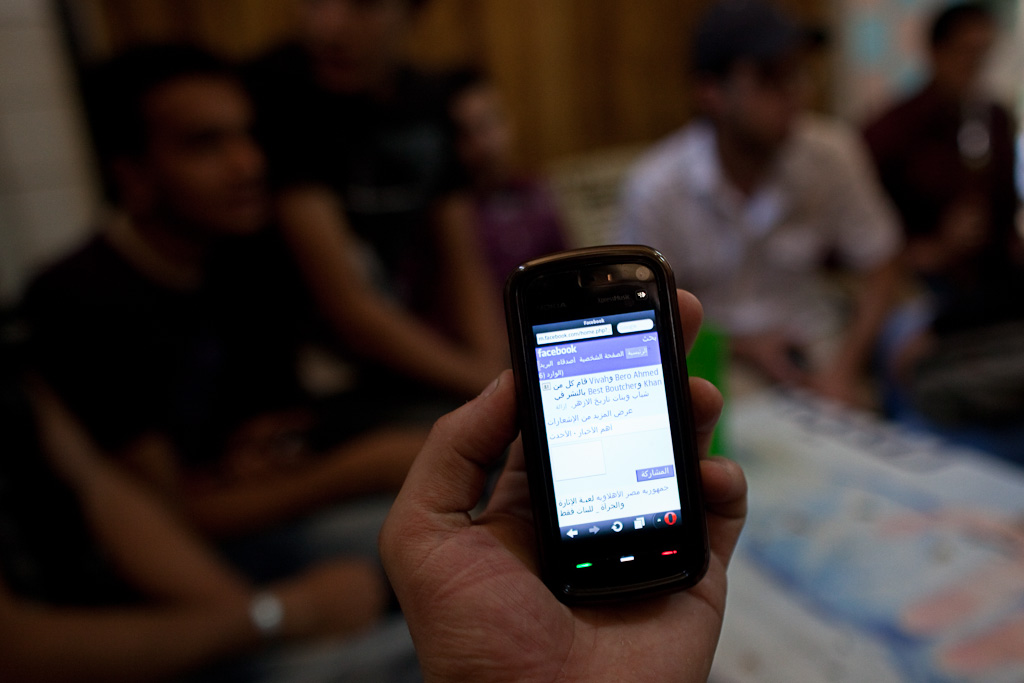See also: Is Internet Access a Human Right?
These questions were originally meant to be weaved into a post here on Future Perfect – ended up being tweeted out from a bar in Tokyo in the early hours of the morning – trying to stay awake up long enough to catch an early flight out of Haneda. I’ve been teasing out the answers to these questions this part week in Egypt and Libya, but frankly still a long way off.
- » Thinking about our motivation for framing and rewriting history
- » What is the internet penetration in Egypt?
- » What % of those on the net on Egypt read/write English?
- » What motivates a native Arabic speaker to communicate in ~English?
- » Through what media/medium did you follow events unfold in Egypt?
- » What is right mix of online/on-the-streets to overthrow a government?
- » Is lack of affordable internet access ‘censorship’?
- » Is the lack of affordable internet access *in your country* ‘censorship’?
- » Is it possible to tweet with one hand and fend off a baton charge with the other?
- » Who is the first to take to the streets?
- » Who takes to the streets only when the Internet is switched off? Why?
- » In a surveillance/traceable society is the online activist in more danger than a face in the crowd? What are the gulfs between online and offline risks and how is they shifting?
- » Who didn’t want to communicate in English? Why?
- » Does $billions in military aid for the Mubarak regime affect who wants to communicate to an English audience?
- » Whose voices are you yet to hear? What effort are you making to hear them?
- » In a real-time/near-time world does the emotion of the moment affect what is communicated? How it is received?
- » Is switching off the Internet for a digital elite censorship or democratic?
- » Is a revolution in real-time addictive? To whom? What are comparable addictions?
- » How many heroes and heroines of the revolution can the mainstream narrative support?
- » How many non-English speaking heroes and heroines of the revolution can the mainstream english language narrative support?
- » Is writing a book about your experience in the revolution heroic? Your duty? Cashing in? Selling out?
- » What are you doing to follow the Arabic-speaking narrative?
- » History doesn’t write itself, or does it?
- » If we didn’t have heroes and heroines would we need to invent them?
- » Can you learn more from a revolution that succeeded, or one that failed?
- » Do we hear/read/seek out more about revolutions that succeed or ones that fail? Why?
- » How many phone numbers do you remember by heart? (bear with me here)
- » How many faces/names/sites/addresses/… do you need to remember by heart? How has this number changed over time?
- » To whom or what do you devolve your need to memorize?
- » Do you trust them? Why? What will it take to maintain/challenge that trust relationship?
- » What happens when more of what you need to recall is reliant on algorithmic choices? The whim of a interface designer?
- » Again, who is history’s gatekeeper? And who do you trust to be the gatekeeper of your history?
- » What happens when history’s gatekeeper needs to bolster its share price? Has an overt political agenda? Has no apparent agenda?
- » Just how elastic is history? Just how elastic do you want it to be? What contexts suit what levels of elasticity? What tools are optimal to stretch and compress history? To whom?
- » Could a digitally generated immolation spark a revolution in a country where the mainstream media is not trusted?
- » What’s so special about the streets?
- » What drives people to the streets? Does turning off the phone network, the internet and blocking Al Jazeera helps unglue people from their seats, and onto the streets? What other factors are needed?
- » What would an online revolution look like? In which country is this closest to reality? Why?
- » Why do we get ‘caught in the moment’? Who is motivated to create moments to be caught in? Why?
- » Channelling @changeorder: Is it better to capture a moment or to be caught in it?
- » What is the optimal mix of those capturing or caught in the moment? How is this mix changing over time? (And optimal mix for what?)
- » I’m spent. Thanks for your feedback and comments. Remember: you are what you allow yourself to be, explore the edges of what you don’t know
5
10
15
20
25
30
35
40
Coming revolution? Those that don’t understand the causes, dynamics, will mis-read what happens next, will be surprised at what occurs down line. Revolutions are relative to your reading of the situation, which begs the question what do you read?
Photo: Facebook through a mobile phone – part of of a group interview in a Cairo chai house.


One Trackback
[…] inspiration | methods | future perfect « […]